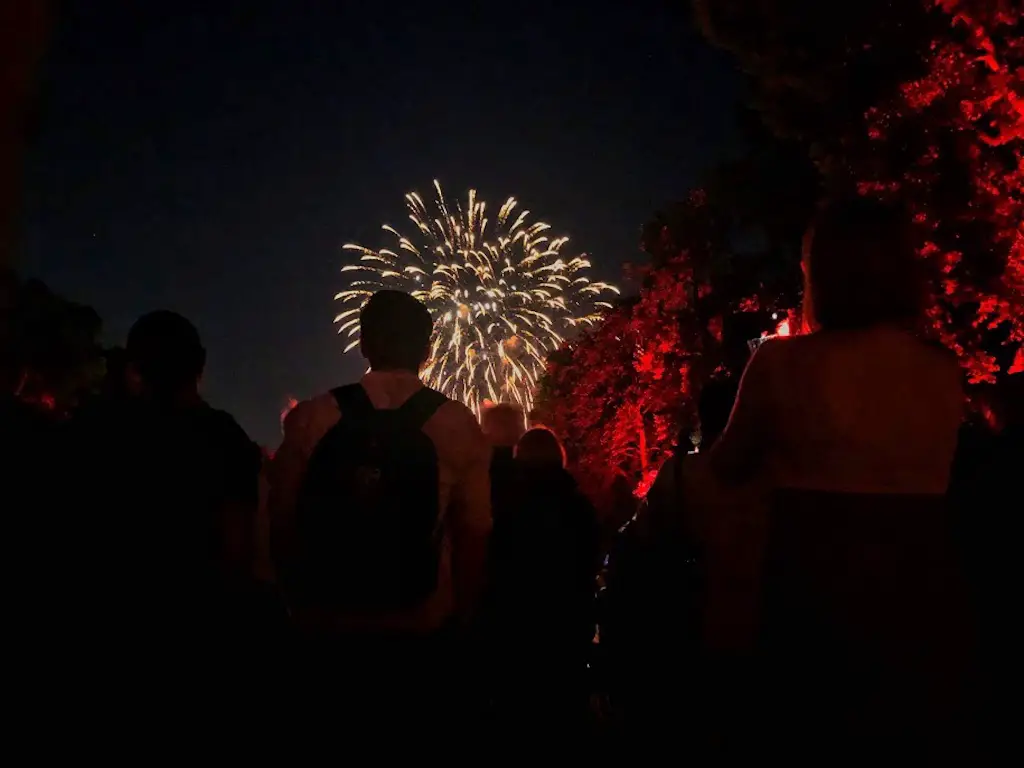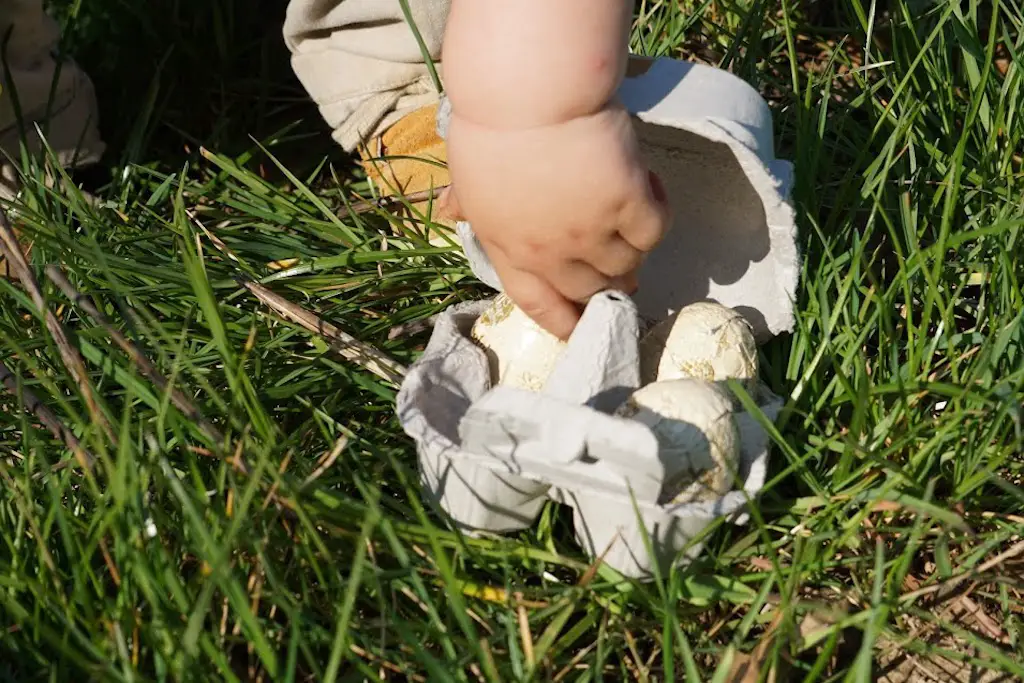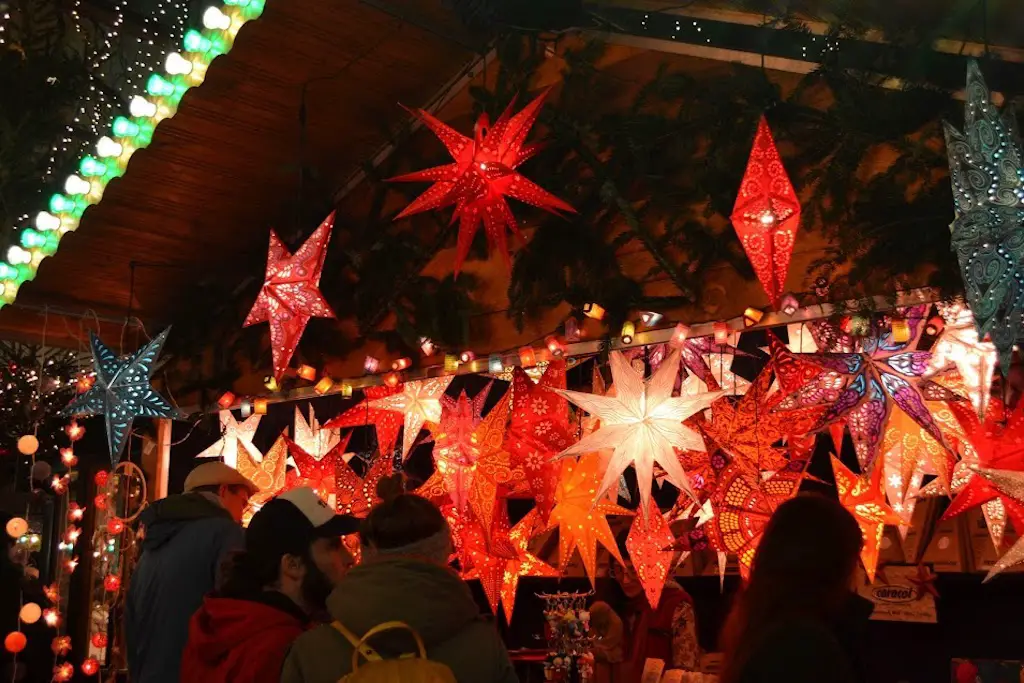Don’t worry, even after 15 years, many of us still haven’t scratched the surface of entirely understanding and remembering which German holidays fall on what days of the year and which ones are actual public holidays.
So, to make sure you’re well-equipped for those upcoming holidays (aka. booking the time off work, planning long weekends, knowing when the stores are closed), I’ve put together a full list of the German holidays that we celebrate here in NRW!
AND you won’t just find the answers, but you’ll also learn more about the German holidays and the way that we celebrate them here in Germany so that you can get your festive party shoes on!
Here’s a complete list of all the German holidays you can celebrate work-free!
January 1st: New Year’s Day (Neujahr)
The first day of the year is a public holiday in Germany. Many people begin January by celebrating the end of the old year and the start of the new one at midnight (AKA. New Year’s Eve – also known as Silvester). These celebrations include public concerts, parties, and fireworks that may last into the early hours of January 1st. Many people spend the rest of the day *cough* hungover *cough* quietly, but some join their friends or family for a New Year’s lunch or dinner.
Depending on your workplace, you might even get a few days in February free for the almighty Karneval! Just make sure to check with your workplace ahead of time.

April 10th: Good Friday (Karfreitag)
From Good Friday to Easter Monday, everything is closed including shops, banks, and offices. Good Friday is treated as a quiet holiday (stille Tage) in Germany. It is celebrated two days before Easter Sunday. Many Church services are held in the afternoon, to remember the hours when Jesus was crucified on the cross.
Fun fact: On this day, in particular, it’s illegal to actually dance in public in 12 out of the 16 states in Germany!
April 13th: Easter Monday (Ostermontag)
Easter Monday falls on a different date every year, but it always follows Good Friday. During this time of year, there are a number of Easter traditions you can look out for!
- Easter Eggs: Eggs are often still hand-blown, delicately decorated, and hidden in the backyard for the children to find
- Easter Trees: Easter trees are kept in the home during the holiday season and some people may even decorate the trees in their yards or public park, they tend to have bare branches and are decorated with colorfully decorated eggs.
- Easter Fountains Osterbrunnen: During the season, public fountains are typically draped in arches made of tree branches, flowers, and colorful eggs.
If you are in Germany or you do plan on visiting Germany at this time of year, don’t forget to wish everyone a “Frohe Ostern!” or “Happy Easter!”

May 1st: Labor Day (Maifeiertag)
Germany has been celebrating the Tag der Arbeit since 1890 when hundreds of thousands of people across Europe, protested their working rights on May 1st, 1890. They demanded better working conditions and the implementation of the eight-hour day. Despite this movement, it wasn’t until forty years later that the eight-hour day was agreed upon and trade unions were officially recognized.
May 21th: Ascension Day (Christi Himmelfahrt)
Ascension Day is a public holiday in Germany, which means most businesses and stores are closed. This holiday is to mark Jesus’ ascension to heaven. Christians attend special church services on Ascension Day to celebrate it.
It is also marked as Father’s Day (Vatertag) or Men’s Day (Maennertag, Herrentag). Contrary to other countries, Father’s Day typically consists of groups of male friends and relatives coming together to take part in an outdoor activity, such as going on a hike or walking around the city with a keg of beer in tow.
June 1st: Whit Monday (Pfingstmontag)
Whit Monday is a public holiday. Whit Monday is a day of remembrance to look back on the events that took place on Whitsunday (AKA. the Pentecost) and meet with family and friends to celebrate some local customs.
June 11th: Corpus Christi (Fronleichnam)
Corpus Christi (Fronleichnam) is a Catholic festival that is celebrated on the second Thursday after Whitsunday.
It is a regional holiday in NRW. Fronleichnam celebrates Jesus and his role in the commemoration of the Last Supper. On this day, you may recognize many Catholics heading to church mass. The day usually follows with a procession lead by a local Priest which includes signing, floral decoration, and motives from the Bible. Many also decorate their houses with the same biblical motives.
October 3rd: Day of German Unity (Tag der Deutschen Einheit)
The Day of German Unity is a public holiday. Schools and businesses are often all closed. German Unity Day (Tag der Deutschen Einheit) is annually held on October 3rd to mark the anniversary of the nation’s unification. On this day people remember the Federal Republic of Germany and the Democratic Republic of Germany united to create one single, federal Germany on October 3rd, 1990.
November 1st: All Saints’ Day (Allerheiligen)
All Saints’ Day is a public holiday in NRW. It is a day off for the general population, and schools and most businesses are closed.
All Saints’ Day is a day to remember the lives of every Saint. Catholics often attend a special church service, light candles and pray for deceased relatives. They may also visit the graves of deceased relatives and family friends. In Catholic areas, many graveyards are decorated with flowers and candles.
While German’s don’t celebrate the typical North American “Thanksgiving”, they do celebrate “Erntedankfest” which is similar, but with their own neat traditions – this is definitely worth checking out!
December 25th: Christmas Day (Weihnachtstag)
December 25th is a legal holiday in Germany and is known as the First Christmas Day.
December 24th begins as a regular workday, but many employed people are let off early so that they can prepare for the big holiday celebrations. Some even wait until a few days before Christmas and then cut their own tree down here in Düsseldorf.
The evening typically consists of a huge feast which includes roasted duck or goose stuffed with a mixture of onions, red cabbage, chestnuts, and more! Many German’s call this meal “Gänseessen“. It can often be paired with potato salad (or any potato for that matter), dumplings, and Knödel. On the night of the 25th, families come together to sing Christmas carols, exchange gifts, and drink champagne. Some German families also choose to attend an evening Christmas service at the church.
December 26th: Boxing Day/St. Stephen’s Day (Stephanstag)
December 26th is a public holiday in Germany. Businesses and stores are closed. Some people choose to attend a special church service, and others use this day as an opportunity to enjoy some family time, indulging in more seasonal foods (often leftovers), playing games, drinking beer, and going for a winter hike.
Nowadays, the famous Boxing Day shopping traditions from North America are being implemented here in Germany, which means a lot of online shopping takes place on this day on popular sites like Zalando and OTTO. Many of the Christmas Markets around Düsseldorf are also staying open until the new year so that you can still celebrate the holidays.

Living in Germany can be quite exciting. Getting involved in the various German holidays and festivities is a great way for expats to integrate into German culture. Also, if you are working in Germany, it is nice to know that you may have several vacation days coming up. Thus, it is the perfect time to explore new German cities and see first hand how they celebrate all the holidays.












